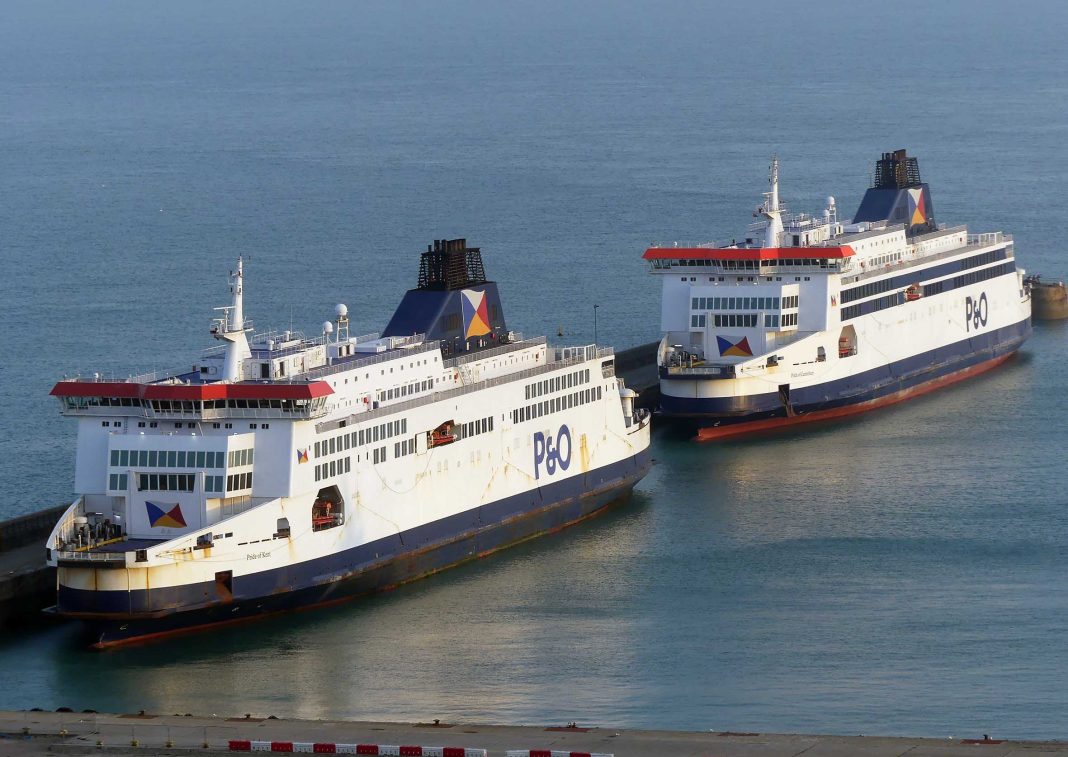The sacking by P&O Ferries of 800 seafarers threatens the UK’s world-leading maritime status and will drastically affect the country’s shipping heritage, former UK Shipping Minister Nus Ghani said.
The Conservative MP said the DP World-owned company had undermined efforts to encourage young people to start UK maritime careers and destroyed the reputation of the 178-year-old British maritime institution that was P&O.
“We need to make sure that this doesn’t set a precedent for other maritime companies to conduct themselves in this vulgar way,” she said.
Most of the company’s 20 ferries and passenger ships, which transport about ten million passengers annually and carry 15 per cent of UK freight, remain out of action.
Cheaper replacement crew recruited by agencies need to be trained and vessels pass Maritime and Coastguard Agency inspections to ensure safety standards are met.
Unions joined protests in London to have seafarers reinstated, amid reports that some agency crew had already quit their jobs because they were not told the circumstances under which they were hired.
Demonstrations against P&O taking place across British ports this week, with the RMT organising mass events at ports up and down the country, to show DP World and the government that public anger is growing.
Protests will take place in Liverpool, Hull, Larne in Northern Ireland, Cairnryan in Scotland and Dover.
RMT general secretary Mick Lynch said: “The government and the Sultan of Dubai who owns P&O ferries, believe they can bunker down and ignore us.
“The British public is outraged by this injustice and understand that if these workers are not fully reinstated, the same thing could happen to them in their workplaces.”
Ministers have also condemned the sackings, which were made via a video link on 17 March, and are examining whether they went against employment law. The UK government is also reviewing its contracts with P&O Ferries.
The wider implications for the UK maritime sector and logistics supply chains are now being debated, given the dominance of DP World in the UK.
The state-controlled, Dubai-owned company also owns the London Gateway and Southampton container and logistics terminals, two of the largest in the UK, from where they are starting two freeports in partnership with other port providers.
“This has damaged the shipping industry,” said Jos Sanderwick, chief executive of Maritime London, the trade association covering maritime professional services.
“While P&O Ferries, like any business, has the right to restructure in order to return to profit, there’s no doubt the nature of the announcement seems to fall outside what might be described as the norms of a company operating in the UK.”
In the House of Commons, Transport Secretary Grant Shapps told MPs that in both 2020 during the coronavirus pandemic and in 2021 “redundancies took place at P&O in numbers in 2020 larger than we’ve seen in the case of last Thursday”.
He added: “However, they properly consulted about those redundancies and they were made voluntary.”
He went on: “It was deeply concerning to see the footage of staff being forcibly removed from ferries, underlining a very cynical approach and confrontational nature of the entire operation, not at all what we’d seen in those previous two rounds.”
From Tuesday 22 March Stena Line laid on extra ferry services between Northern Ireland and Scotland using Stena Nordica. Shapps, in the House of Commons, stated that Stena had “stepped up” after P&O routes were suspended and that it would ease pressure on retailers.
In Northern Ireland it is understood up to 50 workers from P&O are affected by the sackings, with Northern Ireland’s Economy Minister accusing P&O of “ripping up the employment rule book”.
The ferries
In Dover, two of P&O’s ferries, Pride of Kent and ride of Canterbury, moved berths to Dover’s Eastern Arm, but have not re-entered service
Spirit of Britain remains alongside the Western Arm of Dover harbour, where she was taken just before the sackings were announced.
Spirit of France was sent to Schiedam in mid February, but was moved to Rotterdam in March and remains there.
In the Irish Sea, Norbank was operating her schedules, while Norbay was laid up in Liverpool on 17 March and has remained there since.
Photos by George Holland


